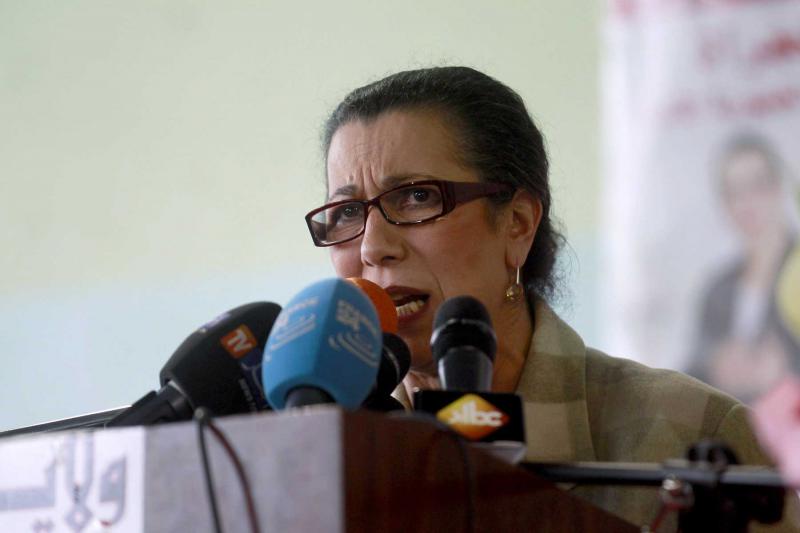ALGIERS –
Secretary-General of the Workers’ Party (PT) Louisa Hanoune announced her candidacy for the upcoming Algerian presidential election scheduled for September 7 during a news conference held at her party’s headquarters.
Hanoune’s candidacy was previously a routine matter, especially since she is running for the fourth time. Yet, this time, Hounoune’s candidacy comes as current President Abdelmadjid Tebboune himself has not formally announced plans to seek a second term. According to observers, there is ambiguity when it comes to the internal front of power, which prompted some experts to link Hanoune’s early announcement of candidacy to the crisis of consensus on a figure representing the deep state.
Hanoune emphasised the critical importance of her party’s participation in the election, highlighting commitment to offering substantial political solutions.
“At the PT, we believe that participating in the September 7 presidential election is crucial. This electoral event is unique and we will present concrete political solutions as part of our campaign,” she said.
Elaborating on the PT’s motivations, she said, “We have decided to participate in the elections to ensure the continuity and sovereignty of the State … Our campaign will not be a traditional defensive one.”
Hanoune described her participation in the elections as a “victory for democracy,” noting that her election campaign would be “offensive” rather than “defensive.”
Louisa Hanoune was imprisoned in May 2019 on charges of “conspiring” against the state and the army following the start of the popular movement.
In 2021, the court acquitted Louisa Hanoune, Said Bouteflika, former intelligence directors Lieutenant General Mohamed Mediene and General Othman Tartag.
Algeria has struggled to get voters disillusioned with politics to participate, including in the 2019 presidential election where turnout was below 40 percent.
Whether they turn out or stay home, the upcoming election will mark the next chapter for Algeria, five years after a nationwide peaceful protest movement forced octogenarian President Abdelaziz Bouteflika to resign.
For weeks, demonstrators took to the streets demanding an overhaul of the country’s corruption-ridden politics, in which the military has long played an outsize role.
After earlier announcing plans to seek a fifth term in office, Bouteflika stepped down under pressure from both the public and the military.
Tebboune rose to power later that year in an election boycotted by protesters who feared holding the vote too soon could thwart the opportunity offered by Bouteflika’s ouster.
The country is Africa’s largest by area and a key security partner for Western nations. An OPEC member, it has long funded a large chunk of its government operations and social services with oil and gas revenues.


